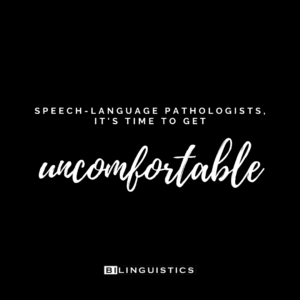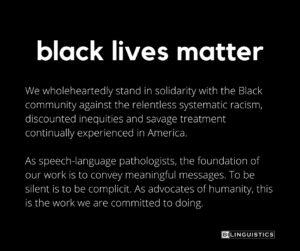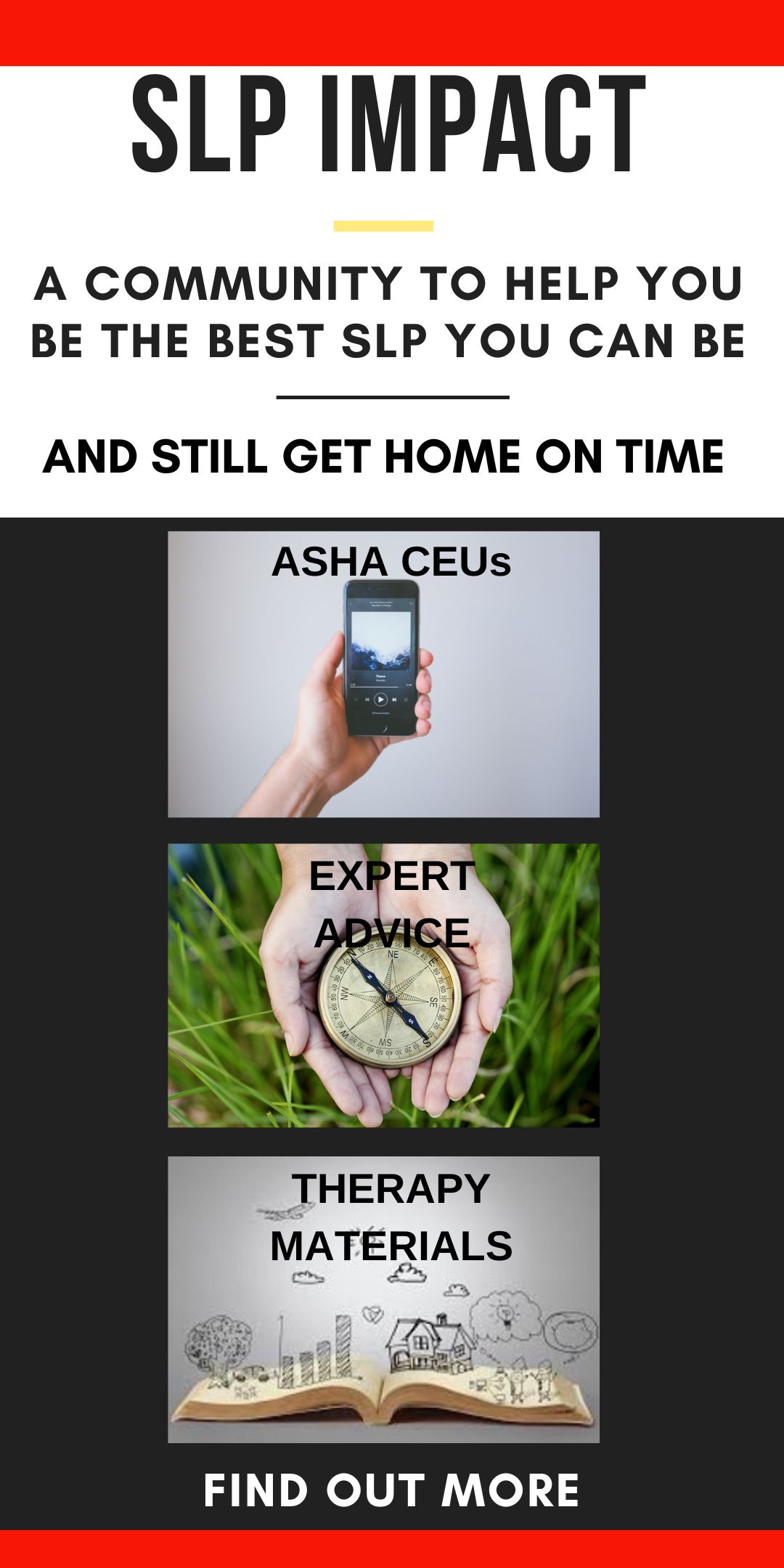The following words are written to give acknowledgment, perspective and resources. In saying that, we at Bilinguistics, acknowledge that our voices and sentiments are secondary to the voices of the Black community, including our Black speech-language pathology peers. While is not the exhaustive job of SLPs of color to educate us, their written words, social media feeds and sentiments give us a deeper understanding of the perspectives of others which can propel actions for the betterment of society. Black lives matter.
Why is this important?
This post must begin with acknowledgement. Our Black community is hurting and grieving. This Hurt has lasted for 401 years, and most of us are privy to this Pain with the advent of technology to document the violence that has always occurred in our country’s history. Systemic racism, discounted inequities and savage treatment has been a part of the narratives of our peers, students, clients, patients and families. This truth is a part of our work as speech-language pathologists.
The American Speech-Language Hearing Association (ASHA) states that as SLPs, we need to “understand cultural variables and how they may influence communication.” Additionally, our national organization reports that these efforts include “identifying and acknowledging limitations in education, training, and knowledge and seeking additional resources and education to develop cultural competence via continuing education, networking with community members” and “integrating clients’/patients’/families’ traditions, customs, values, and beliefs in service delivery.” As we witness the roar of #blacklivesmatter, let us gain information from the voices that have felt the pain, digested the atrocities, been exiled from conversational, decision-making spaces and excluded from the benefits of humanity.
This is important because it is a part of our roles and responsibilities as speech-language pathologists. Black lives matter, and we are advocates of humanity.
Race and Implicit Bias
In 2004, I was starting my clinical fellowship year in a school district. I was the first person in the teacher’s lounge that day, and a first grade teacher entered. “How are you?” I asked. She proceeded to tell me about a new student in her classroom. It had been a few days since his enrollment, and he was showing “non-compliant” behaviors in her class. She recounted his unwelcomed actions and conveyed that he was black. I will acknowledge that he was the sole black student in her classroom. She concluded by saying, “Well, if that’s how they are, I don’t want them in my classroom.” I felt the wrongness. I stood there and I did not say anything. This was wrong, and I became a part of the problem. This was the first time, as a speech-language pathologist, I observed blatant racism.
Every single human holds a racialized identity, and this identity impacts our day-to-day lives. In all settings, including the United States, race is a part of our social constructs. To say that we are all the same is to discount the individualized lives we lead.
Then, there are implicit biases, which are unintentional thoughts we have that impact our daily actions, behaviors and judgments. Becoming aware of our implicit biases and naming them is an important step in making changes. For example, I shared during many presentations as study that concluded that the number of words a child hears before preschool age impacts their educational success. A fellow SLP with a background in anthropology kindly took the time to talk to me, and share her perspective about limitations of the study. She shared that there were greater differences than the number of words heard, and I now understand that it’s not just how many words a child hears—it’s historical and socio-economic forces that impact the disparities in academic achievement between low-wealth and affluent communities.
Vocabulary is Important
Now, I want to get wordy. As a speech-LANGUAGE pathologist, I think a lot about vocabulary, definitions and humanity. Words are dynamic entities that change with time and growth, and there are important words for us to think about and understand at this time.
Microaggression: a statement, action, or incident regarded as an instance of indirect, subtle, or unintentional discrimination against members of a marginalized group such as a racial or ethnic minority; this is a form of racism
Racism: prejudice, discrimination, or antagonism directed against someone of a different race based on the belief that one’s own race is superior
Privilege: a right or liberty granted as a favor or benefit especially to some and not others; this exists outside of the work you have poured into your life; it is an unearned advantage; your advantage can be derived from your gender, your racial category, your age, your sexual orientation, your religion and your (lack of) disability
Equity: a measure of achievement, fairness, and opportunity—you get what you need, and this looks different for each human
Social Justice: justice in terms of the distribution of wealth, opportunities, and privileges within a society
Anti-Racist: a conscious decision to make frequent, consistent, equitable choices daily
Humanity: the quality or state of being humane through compassionate, sympathetic, or generous behavior or disposition
And: a conjunction used as a functional word to indicate connection or addition; AND is used to show that there is more than one truth; multiple narratives are lived
The aforementioned words must be understood and felt, and they can only be felt when you let the stories of black children, women and men into your SLP brain and human heart. Take in the stories without the need to justify your ego, critique actions and feelings and bring yourself into a narrative that may be different from yours.
Name Are Important
Now, let us talk about names. Monikers are bestowed to people for meaningful reasons when they are born. Names are important because they are attached to a human being with bones and blood and stories lived. The names listed below are also making an emotional, painful impact on the lives of our Black SLPs, Black students, Black patients, Black clients, Black families, and Black colleagues.
Let us speak the following names aloud: George Floyd, Breanna Taylor, Michael Ramos, Eric Garner, Trayvon Martin, Michael Brown, Christopher Mitchell, Stephon Clark, Tamir Rice, Botham Jean, Oscar Grant, Joshua Brown, Emmett Till and many, many, many, many, many, many, many, many, many, many more worthy black human lives. Black lives matter.
What do we do to support our Black communities?
What do we do, SLPs? There’s so much to do, and it’s all uncomfortable. Sit in the discomfort and the unknown. Mistakes will be made, and your worth is not based on the errors. Your worth is based on the Trying and the Humanity. And, this Hard does not come close to the flames that have enveloped the black community. Let us try to make it better:

1.When you feel safe, speak up. Say, “This is not okay. It is not okay for black children, women and men to die.” Say this wholeheartedly. Acknowledge the wrongness.
2.Recognize your privilege. Remember, privilege is an unearned advantage. It does not relate to the work you have poured into your life. Rather, it’s naming the advantages that have been bestowed to you without your effort (e.g., gender, age, racial category, sexual orientation, neurotypical).
3.Incorporate resources and books from people of color into speech-language therapy sessions. Let stories in through books and media. There is much to digest. As advocates of literacy-based assessment and therapy, here are books with Black protagonists we use with our clients and students:
Elementary Level
A Kids Book about Racism by Jelani Memory
Last stop on Market Street by Matt de la Peňa
The New Small Person by Lauren Child
Look Up by Nathan Bryon and Dapo Adeola
Please Baby Please Spike Lee and Tonya Lewis Lee
Dancing in the Wings by Debbie Allen
Baby Dance by Ann Taylor
Peekaboo Morning by Rachel Isadora
I Can Do it Too by Karen Baicker
Lola at the Library by Anna Mcquinn
When Grandma Gives you a Lemon Tree by Jamie L.B. Deenihan
I Got the Rhythm by Connie Schofield-Morrison
Jabari Jumps by Gaia Cornwall
Ron’s Big Mission by Rose Blue and Corinne Naden
Those Shoes by Maribeth Boelts
Martin’s Big Words by Doreen Rappaport
Henry’s Freedom Box by Ellen Levine
Snowy Day by Ezra Jack Keats
Hair Love by Matthew A. Cherry
I am Enough by Grace Byers
Secondary Level
One Crazy Summer by Rita Williams-Garcia
New Kid by Jerry Craft
4.Amplify voices that have been neglected in this past. This begins by giving a seat at the table to our peers of color. Next, we listen. In these moments, it is important to acknowledge that the sentiments and feelings are valid. Feelings cannot be combatted with your experience, statistics and data. And, if the feelings conveyed are big, it is due to the emotional tax of living life as a person of color. Here are important voices:
Follow and learn:
@theconsciouskid
@iamrachelricketts
@diversereads
@britthawthorne
@thetututeacher
@apron_education
@readlikearockstar
@blackandembodied
SLPs of Color:
@blackandspeechie
@speak.fromtheheart
@theslpway
@jrc_theslp
@thesmileyslp
@slpsofcolors
@sistasrock
Books:
White Fragility by Robin DiAngelo
Between the World and Me by Ta-Nehisi Coates
How to Be Anti-Racist by Ibram X. Kendi
The New Jim Crow by Michelle Alexander
Follow, read and study the sentiments of the individuals and organizations above. We are grateful for the brave and vulnerable voices who have used their emotional labor to educate and inform us.
Hope

These words shall conclude with our Black communities—our Black SLP peers, our Black students, our Black patients, our Black clients, our Black families. As speech-language pathologists, the foundation of our work is to convey meaningful messages. We are listening. As advocates of humanity, this is the work we are committed to doing. Black lives matter.
It’s up to us, and there is Hope is this work. Hope requires humbling dialogue and hard work. I have Hope–Humanly Hope.




Hi! I am a SLP grad student. I want to thank you for your article. I am hoping to explore the different ways SLPs can advocate for all our students, no matter the cultural difference. One practical way I have thought to do this is by integrating AAVE into our speech sessions. From what my research has shown me, this is a way we can allow our students to feel safe and understood. AAVE is a dialect that shouldn’t be minimized or “treated” but embraced. AAVE should be socially accepted in all environments! I wanted to add this brief comment to add to your article. Thank you again for the insight!